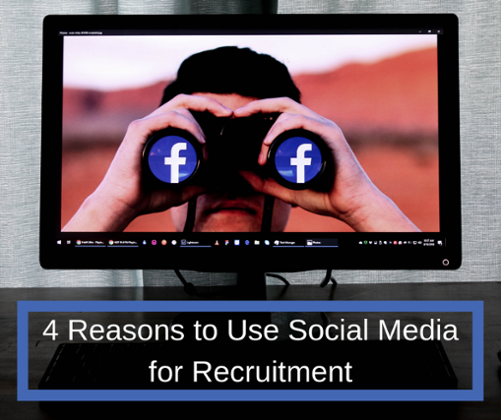Walking into an educational session called “How to Make Your Content More Inclusive” at HubSpot’s INBOUND event earlier this year, I wasn’t convinced that it was going to be the best use of my time. That week was packed with speakers who delivered specific takeaway messages about creating more effective Facebook ads, Instagram posts, email newsletters, and so on. All lessons I really wanted to absorb, bring home with me, and instantly implement for our company and our clients. I confess, my attendance at this session was based on the number of open seats left, not how practical I thought it was going to be.
Hear me out: inclusivity is important to me. I am, after all, a millennial. My generation is made up of online social justice warriors. We care. At least enough to tweet about an injustice, if not actually take any action against it. Unfortunately, I’ve read so many angry, all caps tweets, posts, comments, you name it, already in my lifetime that I’ve become a bit desensitized to some hot-button issues, such as inclusivity.
But once I sat down and the lecture began, the speaker, Emily Triplett Lentz, Content Strategy Lead at Help Scout, snapped me out of my indifference when she said that the non-inclusive words used in writing are just “lazy placeholders for more precise words.” That sentence tightened my chest because I instantly thought, “I am definitely guilty of using lazy placeholders.”
I still wouldn’t say that my top priority when it comes to writing is being politically correct, but I do care about making content that is accessible and welcoming to everyone. Marketing content is meant to be valuable and enjoyable. I want people to read my blogs and leave the webpage with new information and smiles on their faces. So, I’m challenging myself to focus more on word choice when creating marketing content. Want to join me in writing with more mindful intention? Let’s start with these two tips…
- Avoid “Lazy Placeholders”
Non-inclusive words aren’t always intentionally offensive, but they’re a problem, nonetheless. Even common words like “lame” or “dumb” can make readers uncomfortable, especially if they have a disability. This is because these words may have once been used as a derogatory insult directed at the reader. Plus, this type of language rarely describes the precise message you’re trying to deliver anyway. Wouldn’t words like “boring” or “unhelpful” be more accurate and interesting?
A similar example is using words such as “crazy” and “mental” in a subject line or title as a desperate attempt to grab the reader’s attention. These words alienate those with mental illness diagnoses and again, they don’t really even say what you want them to. I love a good deal as much as the next person, but no matter how deep the discounts, no sale is the dictionary definition of “crazy.” It’s best to just explain how much money people will be saving than it is to use extraneous hype words. If you’re delivering unusual news, then readers will get excited about it without being told to be excited.
- Avoid Overused Words
Admit it, there are certain words and phrases you’re so sick of seeing that you won’t even give content that contains them a chance. Clichés and extraneous words are a surefire way to get readers to click away from your content before they’ve finished reading it. Here are just a few examples of overused words that you could probably find more interesting alternatives for…
- Things
- Stuff
- Often
- Never
- Every
- Many
- Some
- Very
- Feel
- Seem
- Think
- Big
- Small
There’s a pattern here; these words are vague and can almost always be replaced with specific facts or precise language. You must, however, take the time to do enough research. Lack of research causes us to use these weak words because it’s easier to throw them in than it is for us to look up statistics. It’s more compelling to say “75 percent of people like pizza more than they like spaghetti” versus “many people like pizza more than they like spaghetti.” Who says, why should the reader believe you, and why should they care if you have no facts to back up your claim?
Focus on what’s best for the reader, not what’s easiest for the writer. If you don’t, people will stop reading at the first sign of an offensive or overused word. Don’t confuse your readers with jargon and pretentious language, just keep it simple. It’s not good business to make people feel alienated.
There are, however, no hard and fast rules about which words to avoid. You’ll have to continue to make subjective decisions, but now you have knowledge about word choices that will allow you to approach your writing and editing process with more intention. We won’t get it “right” every time. I very well could have made word choices in this blog that I’ll look back on and cringe at, but this skill will progress with practice. Just like our gym routines, when we make a choice out of laziness, we get weaker. But when we train with discipline, we become strong.








